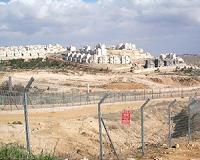 |
Washington (AFP) Dec 9, 2010 US Secretary of State Hillary Clinton met here Thursday with Israel's chief peace negotiator Yitzhak Molcho to see how to break the deadlock in the Middle East peace talks, her spokesman said. Clinton sought to get "a perspective on the Israeli side of how to move forward, and the secretary and Mr. Molcho also engaged in substantive issues," her spokesman Philip Crowley said without elaborating. Their meeting lasted "for more than an hour" while US envoy George Mitchell, who is due to return to the region next week, and other Middle East experts also met with Molcho, Crowley said. Meanwhile, the Palestinian chief negotiator, Saeb Erakat, was due to arrive for talks with the US State Department's Middle East team later Thursday and for talks with Clinton on Friday, he added. When asked if the Israeli and Palestinian teams could meet together here under US auspices, Crowley replied: "I'm not anticipating that there would be a three-sided meeting in Washington." Crowley said Clinton had spoken twice over the telephone on Wednesday with Palestinian president Mahmud Abbas. The calls were "to follow up on other meetings that President Abbas had had in the region and to encourage President Abbas to dispatch Saeb Erekat here for follow-on discussions, and President Abbas agreed," he said. Crowley said Palestinian Prime Minister Salam Fayyad was also heading to Washington where he was expected to meet Clinton ahead of a forum at the Saban Center for Middle East Policy. The chief US diplomat was due to give a speech at the forum on a new strategy for advancing the peace process. Direct Palestinian-Israeli peace talks, only launched here in September, were thrown into disarray on Tuesday when Washington suspended its demand for Israel to renew a freeze on Jewish settlement building in the West Bank. Crowley said Wednesday that Washington still considered settlements in occupied Palestinian land to be illegal but would now seek means other than a settlement freeze to restart peace talks. The Palestinians have refused to return to peace talks without a new settlement freeze. They want it not only on the West Bank, but also in east Jerusalem, which they claim as the capital of a future state.
Share This Article With Planet Earth
Related Links
 US opposes Israel settlements: spokesman
US opposes Israel settlements: spokesmanWashington (AFP) Dec 8, 2010 The United States continues to oppose Israeli settlements in the West Bank, but is holding out hope for a Mideast peace deal next year despite a continued impasse over building there, a State Department spokesman said Wednesday. "Our position on settlements has not and will not change," spokesman PJ Crowley told reporters. "The United States does not accept the legitimacy of continued Is ... read more |
|
| The content herein, unless otherwise known to be public domain, are Copyright 1995-2010 - SpaceDaily. AFP and UPI Wire Stories are copyright Agence France-Presse and United Press International. ESA Portal Reports are copyright European Space Agency. All NASA sourced material is public domain. Additional copyrights may apply in whole or part to other bona fide parties. Advertising does not imply endorsement,agreement or approval of any opinions, statements or information provided by SpaceDaily on any Web page published or hosted by SpaceDaily. Privacy Statement |